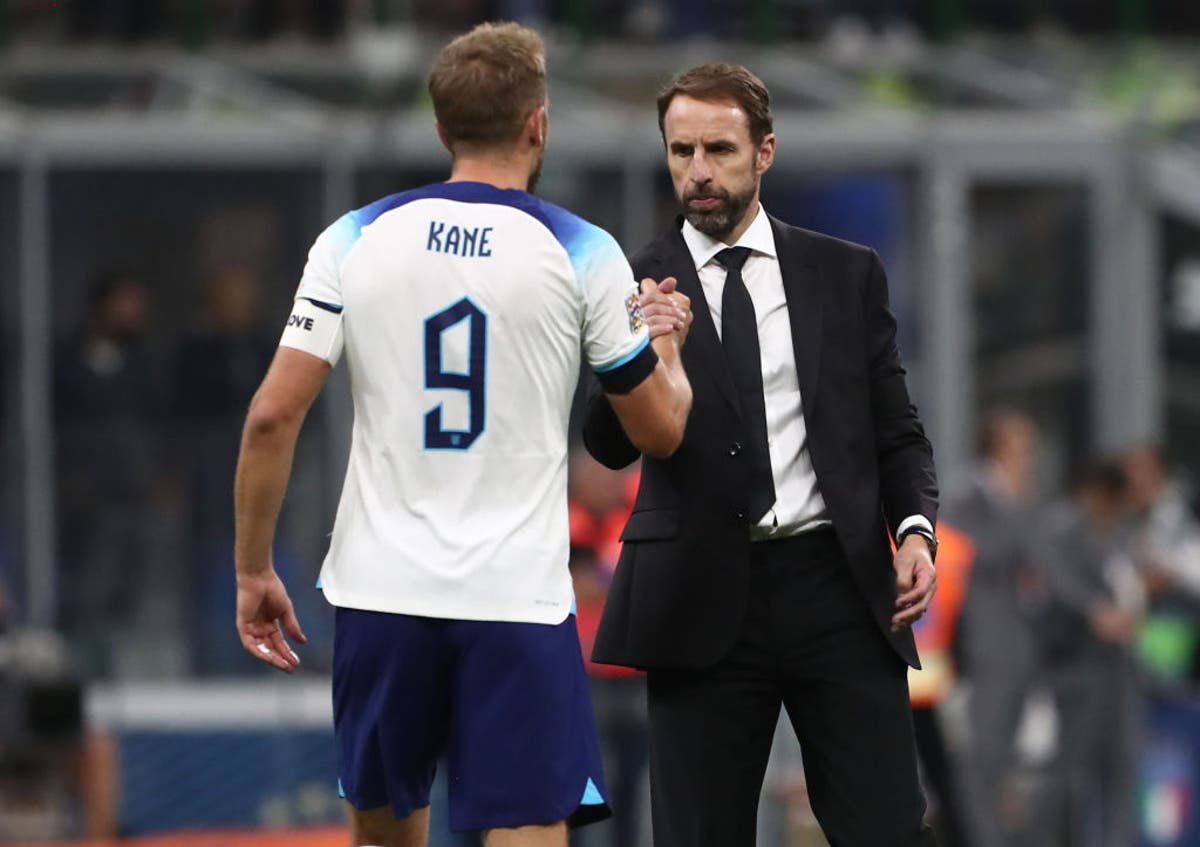This website uses cookies so that we can provide you with the best user experience possible. Cookie information is stored in your browser and performs functions such as recognising you when you return to our website and helping our team to understand which sections of the website you find most interesting and useful.

Gareth Southgate has admitted that the World Cup will decide his future as England manager, despite a contract that runs until Euro 2024.
The 52-year-old is currently on his worst run during six years in the job, a spell that has been accompanied by criticism and significant supporter unrest. Southgate urged the Wembley crowd to “support” the team ahead of the last match before the World Cup, a final Nations League game against Germany in a group that has already seen England relegated. The manager insisted that a sense of togetherness and support was the best way to get the players performing with freedom, in a period where they have scored only once in five games.
It summed up the mood, though, that Southgate ended up addressing his future. His current contract is now primarily based on tournament performance, with two notionally left on this deal. Southgate nevertheless admitted that was “irrelevant”.
“I know ultimately I will be judged on what happens at that World Cup,” the England manager said. “Contracts are irrelevant in football because managers can have three, four, five-year contracts and you accept that if results are not good enough it is time to go your separate ways. Why would I be any different? I am not arrogant enough to think that my contract is going to protect me in any way.”
The Football Association has been fully supportive of Southgate throughout this run, in private as well as in public, and there is naturally no chance of a change before the World Cup.
“And I am absolutely appreciative of that,” he said. “But of course we understand how the mood changes with the results – and has changed. I am realistic about that – I will be judged on what we do in Qatar and I am perfectly happy to be judged in that way. History is history – you are judged on the next match and the next tournament.”
Southgate also spoke of the need for a supportive crowd at Wembley on Monday, as he admitted he clearly sensed the mood was coming to a tipping point. The manager’s main concern has been not letting that “noise” affect the players, which is why a positive atmosphere at Wembley was important.
“Of course it’s not healthy for the team to be having this noise around them, I fully understand that. But it’s for me to take responsibility; it’s for me to allow them to go and play. I want them to feel the freedom. I think they know that we always talk about that within the training ground and on the training pitch.
“I would urge the supporters to get behind the team. How they deal with me at the end or whenever, on the phone-ins or wherever else, is completely different. But this is their last chance to see the boys before they go to the World Cup. And we’re all in it together. We can succeed only if we’re all pushing in the same direction and we’ve all got that positive energy towards doing well.
“What happens to me is irrelevant, frankly. It’s about the team. The most important thing is the team and the success of the team.”
Southgate stressed how that “positive energy”, which marked such a change from previous England failures, had been crucial.
Southgate applauds the fans after the World Cup qualifier in Andorra last October
(Getty Images)
“I think we know that part of the reason we've been successful in the [recent] tournaments has been the feeling of togetherness. We can’t succeed with fans against us, or you guys not feeling warm towards us. I think that’s been a huge strength of what’s happened over the last four or five years, and it’s harder if we’re having to battle with the opposition, then battle with things on our own island.
“Only we can rectify that by performances and results, but that’s the desire. That’s what I set out to do at the start. We wanted to bring people together. We recognised that was a failing and part of the reason we hadn’t succeeded for so long.
“We don’t want the team to be in that type of environment as a group of staff because it is much harder to succeed.”



 Africana55 Radio
Africana55 Radio 
